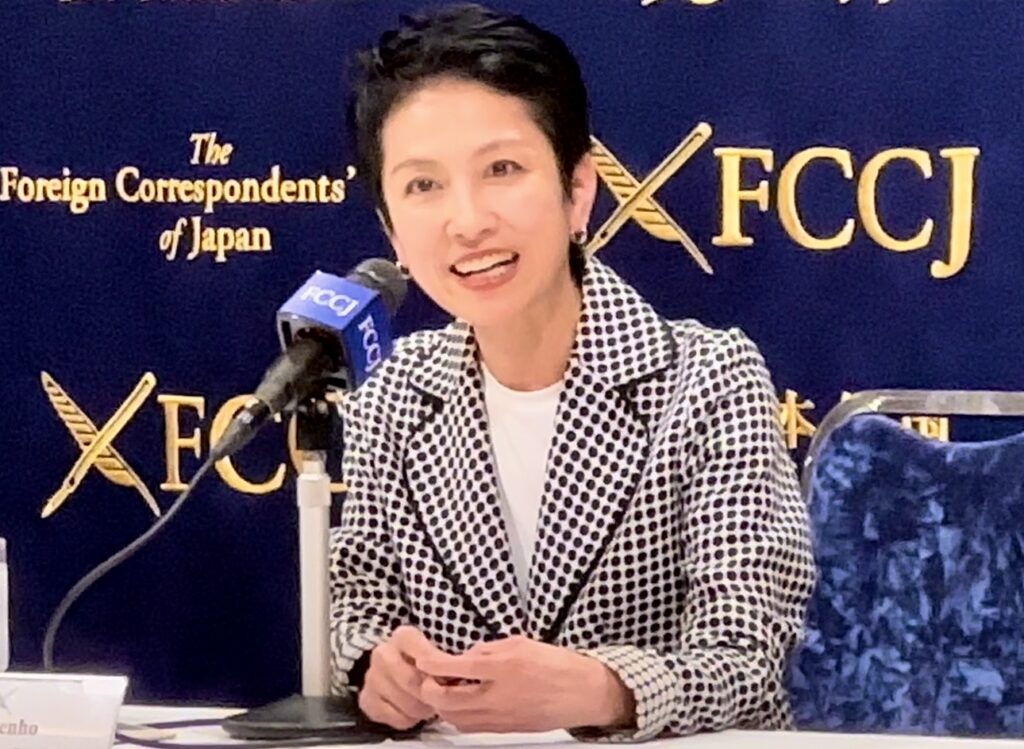
- ARAB NEWS
- 12 Jul 2025

TOKYO: While Tokyo Governor KOIKE Yuriko has gained a lot of credit in her eight years in power, she has done so largely unchallenged. That will all change in the July 7 Tokyo gubernatorial election when she will have to defeat another powerful political presence in SAITO Renho.
Renho, a former model and journalist who goes by her given name, is a high-profile politician who was twice a government minister. The 56-year-old is Japanese but has a Taiwanese father and, like Koike, is a somewhat divisive figure. She has also been accused of having a vague platform to become Governor of Tokyo.
“I would like to engage in administrative reform, which is my key competency,” she told a press conference at the Foreign Correspondents’ Club of Japan. “My goal is to engage in reliable politics from Tokyo.”
“As to how I want to change Tokyo and improve it, the details are still in the works and the specifics will be announced early next year, so there’s nothing too concrete that I can discuss at this time.”
In a thinly disguised criticism of the incumbent Koike, Renho said she did not intend to govern by making “unilateral decisions.”
“My intent is to pursue a bottom-up approach, not a top-down approach, and to involve the people on the ground,” she said. “After that, the governor can decide. That is the type of Tokyo government and administration I would like to pursue.”
Renho has largely been associated with parties opposed to the ruling Liberal Democratic Party – she was previously leader of the Democratic Party – but has chosen to run for Tokyo Governor as an independent.
“It’s not uncommon to run for office at the local government level as an independent,” she pointed out. “I want to beindependent of any political party so that my thoughts, my commitments and my approach to Tokyo governance would be supported by as many people as possible.”
As a Japanese citizen from a bicultural background, Renho does at least have a partly international perspective on life in Tokyo.
“I come from a diverse family and Tokyo has nurtured diversity so it can be livable for all kinds of people, but I do believe there is a need to accelerate efforts to make life easier for international workers to feel comfortable here.”
Renho said she wanted to make it easier for the children of foreigners in Tokyo to be part of the educational system. Foreign children are not required to attend school in Japan. She added that she would like to make high school education free and help with child-rearing policies, but, she warned, the weak yen has made life in Japan more expensive and funding for welfare programs more difficult.
Koike will be in for a tough battle against Renho as she has lost political ground in recent elections involving her supporters and members of the political party – Kibo no To (Party of Hope) – that she created. Koike, too, has been accused of vague and imprecise political points of view. Renho was quoted as saying of her rival, “I cannot keep up with how quickly her words and actions change.”
Observers believe one thing hasn’t changed: Renho’s and Koike’s desire to become the first female prime ministers of Japan. While their policies may be vague, their ambitions aren’t, making the race for governor an important one to watch on July 7.